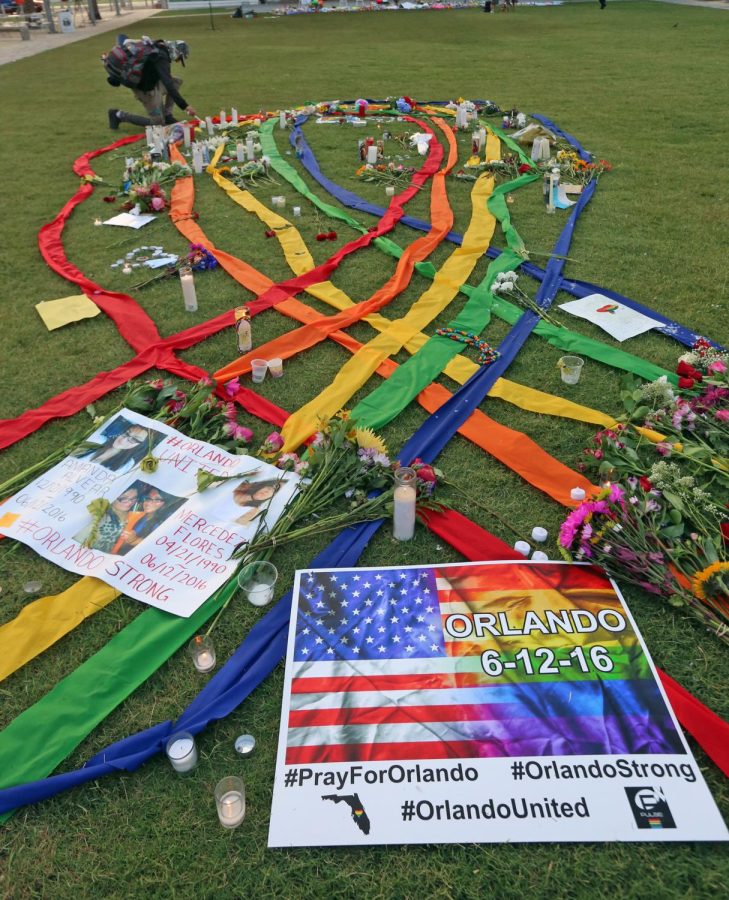LGBTQ history that shaped the community
October 4, 2021
Stonewall riots
According to CNN, the Stonewall Riots began early in the morning on June 28, 1969. New York City police raided the Stonewall Inn, which is a gay nightclub. At the time, same sex relations were illegal, so many LGBTQ people fled to gay bars to openly express themselves and socialize without worry. However, the New York State Liquor Authority penalized or shut down establishments that served alcohol to known or suspected LGBTQ individuals because they said the gathering of LGBTQ individuals was disorderly. Raids like this happened so often that people at the bar were fed up. Once this raid happened, a riot broke out among bar patrons and neighborhood residents as police violently hauled people out of the bar. This then led to six days of protests and violent clashes with law. A year after the event, the Gay Liberation Day parade was held to honor those who fought for gay rights at the riots. This parade is seen as the beginning of pride parades.
Harvey Milk
Harvey Milk took office in the San Francisco Board of Supervisors on Jan. 8, 1978. He was the first openly gay elected official politician in America, according to the Legacy Project. Milk was a longtime activist and pioneering leader of San Francisco’s LGBT community. Many believed that he would have a bright future as a politician. However, 11 months after he took office he was assassinated along with the city mayor. The man who murdered him was not convicted of first-degree murder, but of the lesser charge of voluntary manslaughter—a verdict that triggered riots in the LGBTQ community.
State of the Union address
According to CNN, former president Barack Obama said the words “lesbian,” “bisexual” and “transgender” for the first time in a State of the Union speech in January 2015. His exact words were, “That’s why we defend free speech, and advocate for political prisoners, and condemn the persecution of women, or religious minorities, or people who are lesbian, gay, bisexual or transgender.” However, his speech only contained three references to gay rights. It is still considered a monumous day for transgender people as Obama was also the first president to say transgender in any speech.
Obergefell V. Hodges
According to the New York Times, the Supreme Court ruled by a 5-to-4 vote on June 26, 2015 that the Constitution guarantees a right to same-sex marriage. This case was brought to the Supreme Court because two individuals, James Obergefell and John Arthur James, filed a lawsuit challenging Ohio’s refusal to recognize same sex marriage on death certificates. Arthur had a terminal illness and believed that once he died, Obergefell would not be recognized on his death certificate despite them being legally married. This case overturned Baker v. Nelson, which made restricting marriage licenses to opposite sex couples constitutional.
Pulse nightclub shooting
According to NPR, a mass shooting at the gay nightclub Pulse killed 49 people and injured 53. The shooting happened between the early hours of 2:02 a.m. and 5:15 a.m. ET. At 2:02 a.m., police received reports that multiple shots had been fired at the nightclub. When the shooter first started firing, an off-duty police at the nightclub engaged in a gun battle. However, the shots did not stop after this. The shooter went back inside the club and fired more shots. Additional officers arrived at 2:04 a.m. and entered four minutes later, engaging in more gun fire with the attacker. At 2:35 a.m., the shooter made one of many calls to police department. At 4:51 a.m. police rescued people trapped in the nightclub by dislodging an air conditioning unit from the dressing room window. By 5:30 a.m., the shooter was down. At the time, this was the worst mass shooting in U.S. history.
Homosexuality no longer a “mental illness”
According to the Human Rights Campaign, the American Psychiatric Association removed homosexuality from the list of mental illnesses in 1973. The resolution stated, “We will no longer insist on a label of sickness for individuals who insist that they are well and demonstrate no generalized impairment in social effectiveness.” When the APA released this statement, they hoped it would help ensure LGBTQ people the same rights guaranteed to others. Despite significant steps forward, 31 states still lack fully-inclusive non-discrimination protections for LGBTQ people.



